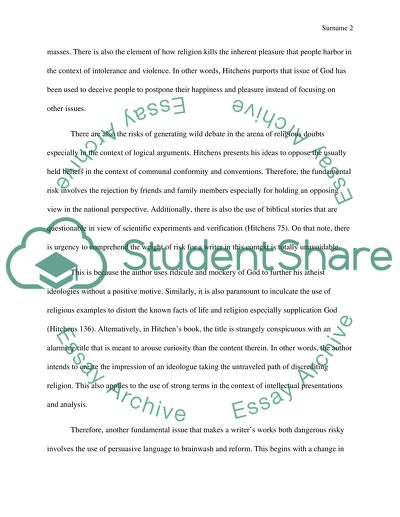Cite this document
(“God is Not Great: How Religion Poisons Everything Essay”, n.d.)
God is Not Great: How Religion Poisons Everything Essay. Retrieved from https://studentshare.org/english/1458496-god-is-not-great-how-religion-poisons-everything
God is Not Great: How Religion Poisons Everything Essay. Retrieved from https://studentshare.org/english/1458496-god-is-not-great-how-religion-poisons-everything
(God Is Not Great: How Religion Poisons Everything Essay)
God Is Not Great: How Religion Poisons Everything Essay. https://studentshare.org/english/1458496-god-is-not-great-how-religion-poisons-everything.
God Is Not Great: How Religion Poisons Everything Essay. https://studentshare.org/english/1458496-god-is-not-great-how-religion-poisons-everything.
“God Is Not Great: How Religion Poisons Everything Essay”, n.d. https://studentshare.org/english/1458496-god-is-not-great-how-religion-poisons-everything.


